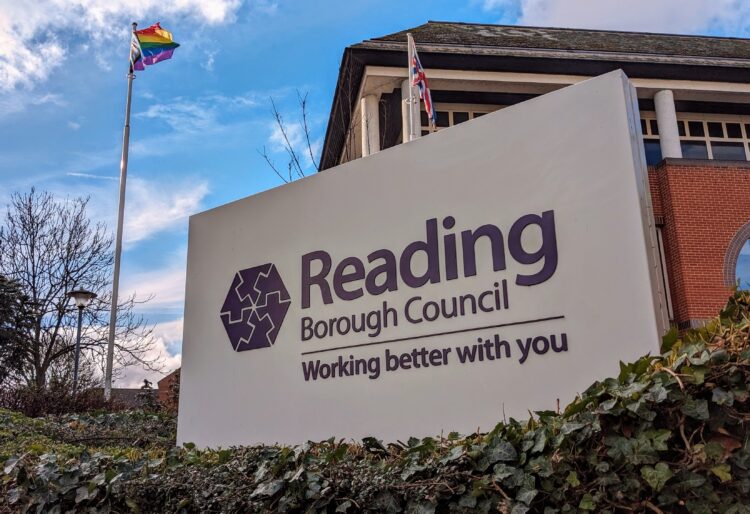READING Borough Council’s proposal to keep all of Tilehurst in Berkshire has been formally submitted to the government.
Following approval at a Council meeting on Tuesday night (Nov 25), the LGR Submission is for the West Berkshire Wards of Tilehurst Birch Copse, Tilehurst & Purley, and Tilehurst South & Holybrook to move into Reading, rather than forming part of Oxfordshire and a significantly larger new ‘Ridgeway’ council.
The council’s position is that moving these suburbs of Reading into a predominantly rural new ‘Ridgeway’ contradicts the government’s prescribed criteria that Local Government Reorganisation (LGR) proposals should be based on ‘sensible economic geography.’
The submission to government requests that if the Secretary of State is minded to agree proposals to create a new ‘Ridgeway’ council, Reading’s boundary is updated to more accurately reflect its geography and its economic footprint.
It comes after months of public consultation, modelling, and data analysis by the council to build a compelling case.
Work undertaken included the commissioning of an independent and representative survey of residents living in the three Tilehurst Wards, to understand just how extensively they use facilities in Reading Borough.
In contrast to Newbury – which is 18 miles away from the three Tilehurst wards – Reading Town Centre is only three miles, or a short 10/15m bus ride away.
As a result, Tilehurst residents understandably take advantage of Reading facilities.
It also found support from residents, including 60% of residents in Tilehurst Birch Copse, who said they would prefer local decisions to be made in Reading, rather than Newbury (37%) or Abingdon (3%).
This jumped to 75% of people in the 18-44 age group.
While no Berkshire council has been asked to submit reorganisation plans, Reading Borough Council says that West Berkshire’s decision to form part of Oxfordshire’s reorganisation plans has prompted it to act.
It argues that proposals for a new ‘Ridgeway’ council would have a material impact should Reading be required by Government to submit reorganisation proposals in the future.
Councillor Liz Terry, Reading Borough Council Leader, said: “To pretend that these three Tilehurst Wards are anything other than suburbs of Reading, flies directly in the face of the Government’s prescribed criteria that proposals should be based on ‘sensible economic geography.’
“That is the basis of Reading’s submission.”
She explained: “Alongside the positive feedback I received from recent face-to-face meetings in these communities, it was helpful to see the results of the independent survey confirm what we already knew – that residents living in these areas see themselves as part of Reading, rely on services provided by Reading Borough Council and yet, have absolutely no say over how these services are run.
“West Berkshire’s own Local Plan describes these three wards as ‘urban with a close functional relationship with Reading’ and ‘benefitting from the facilities and services it provides.’
“In contrast, the ‘Ridgeway’ proposal is focused, in its own words, on reflecting ‘the unique character of our rural area.’
“That certainly doesn’t sound like it would be prioritising these urban areas.”
She continued: “Reading’s intention has never been to block the ‘Ridgeway’ proposal, but once West Berkshire opted to join with Oxfordshire’s proposals, Reading residents would rightly expect my focus to be how this might impact this town’s future and securing the best outcome for our residents.
“The Local Government Reorganisation process offers Reading a once-in-a-generation opportunity to address an outdated and constrictive boundary in the most pragmatic way possible.
“Unlike other LGR submissions, Reading is in the peculiar position of not seeking to create a new authority, but a change to its existing boundary.
“Final decisions will ultimately be made by the Secretary of State, but we are clear our proposal fundamentally strengthens local democracy by aligning where people pay their Council Tax and where decisions are made, with local identity, local services and patterns of daily living.”
She concluded: “A substantial proportion of Reading’s workforce and housing market lies completely outside of its control.
“Key strategic decisions on housing, on transport and on infrastructure are spread across multiple council areas, which leads to delays, higher costs and missed opportunities.
“It makes every one of those tasks harder, slower and more expensive, because both decision making and funding are fragmented.
“This Government has an ambitious agenda for growth, and as an economic power in the region Reading is determined to contribute to that ambition.
“As Reading’s economy continues to grow however, the cost of current constraints continues to rise and that is what we are seeking to address through this process.”
























